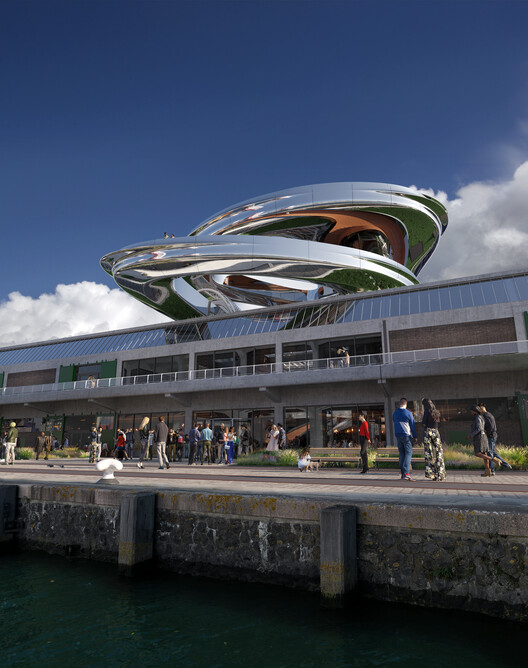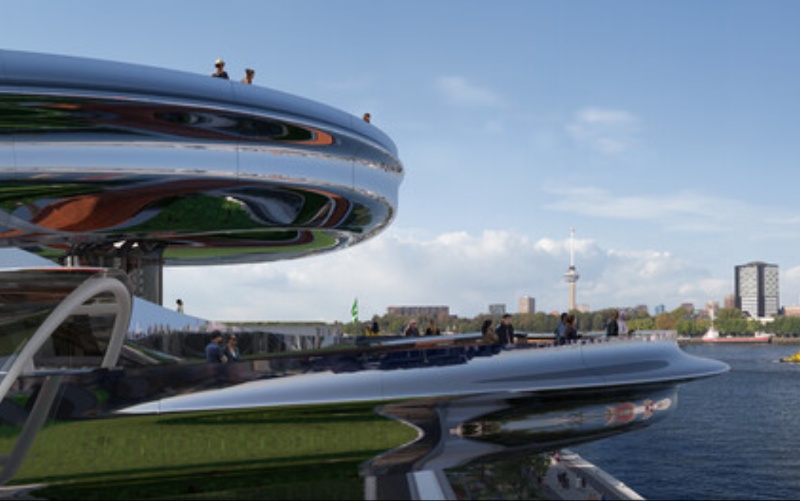The FENIX Museum of Migration, designed by MAD Architects, is slated to open in Rotterdam’s City Harbour in 2025.
The institution’s mission is to tell the stories of global migration via experiences with art, architecture, photography, and history. The museum broke ground in 2020, the same year that the first images of the proposal were unveiled.

MAD Architects is collaborating with Bureau Polderman on the restoration of the historic warehouse from 1932, which now serves as the foundation and starting point for the museum experience.
The project comprises the rehabilitation of the site’s 16,000 square metre facility, which was previously the world’s largest warehouse and served as the Holland-America Line’s storage and shipping centre. During the nineteenth and twentieth centuries, the institution facilitated the voyage of millions of migrants.
The new museum intends to continue investigating the topic of human migration. As a result, three key projects will occupy the ground floor: the Maze, a massive installation made up of 2,000 donated suitcases; the “Family of Migrants” photographic installation composed of documentary images and portraits delving into the themes raised by human movement, family love, the danger of the voyage, and saying goodbye; and a vast flexible space of 2,275 square metres aiming to encourage a new approach for the museum’s curatorial role.
Above the historic warehouse, the Tornado will declare the museum’s dynamic character and serve as a metaphor of the perilous voyages endured by migrants worldwide. The organic structure climbs from the ground floor and flows up and out of the rooftop, forming a platform for pondering vistas of Rotterdam, with views of the River Maas and Hotel New York, previously the Holland-America Line headquarters.
A new exhibition focused on the work of MAD Architects, directed by Ma Yansong, Dang Qun, and Yosuke Hayano, opened recently at China’s Shenzhen Museum of Contemporary Art and Urban Planning, covering nearly two decades and 52 projects.
The Ark, a warehouse redevelopment project set to transform a disused industrial site in Shanghai into a cultural centre for innovation and trade, was also recently disclosed by the office.
Similarly, MAD Architects has revealed plans to develop a new art centre in southeast China’s Zhejiang Province that will be inspired by local and contextual conditions.











